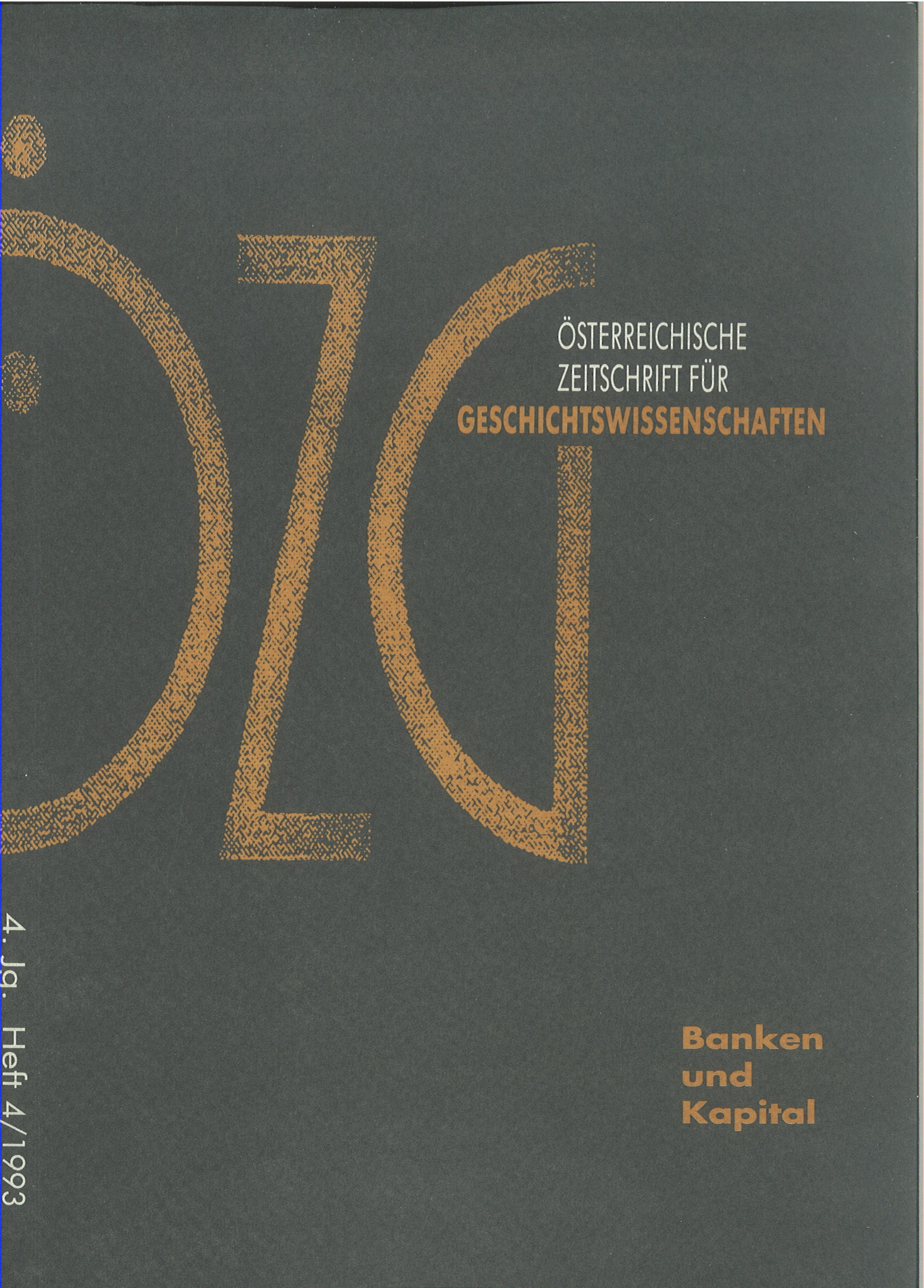Kontinuität und Diskontinuität: Banken und Industrie in Mitteleuropa im 20. Jahrhundert
DOI:
https://doi.org/10.25365/oezg-1993-4-4-2Abstract
The contribution looks critically into the past experiences with credit-financing of industry by banks in twentieth-century Central Europe where universal banking became prevalent. The role of banks in the process of industrialization and economic growth is discussed both theoretically and in historical perspective in Austria-Hungary until 1918 and in the successor states to the Dual Monarchy thereafter. Attention is focused on the decline of the big Viennese banks after 1918 and the endeavours to develop independent banking systems in the newly founded Central and Southeast European states, particularly in Czechoslovakia. Empirical evidence shows that universal banks were unable to cope with the crisis of the 1930ies and accross Central Europe the state intervened by ,socializing' the losses of the big credit banks and their large industrial clients. These actions succeeded in rescuing capitalism and buttressed highly concentrated structures within banking and industry. Seen in historical context, investment capital and credit-financing of industry by banks in interwar central Europe failed to engender capital accumulation or to support sustained economic growth.


